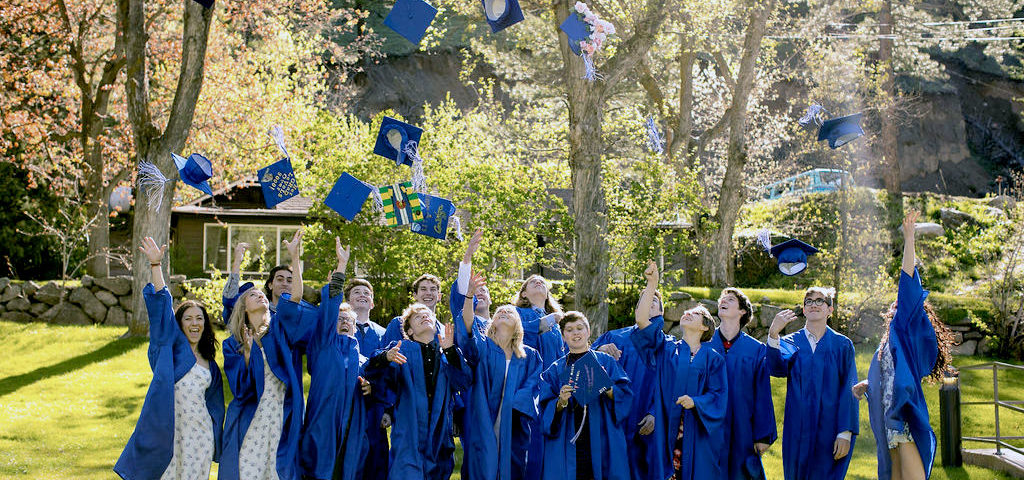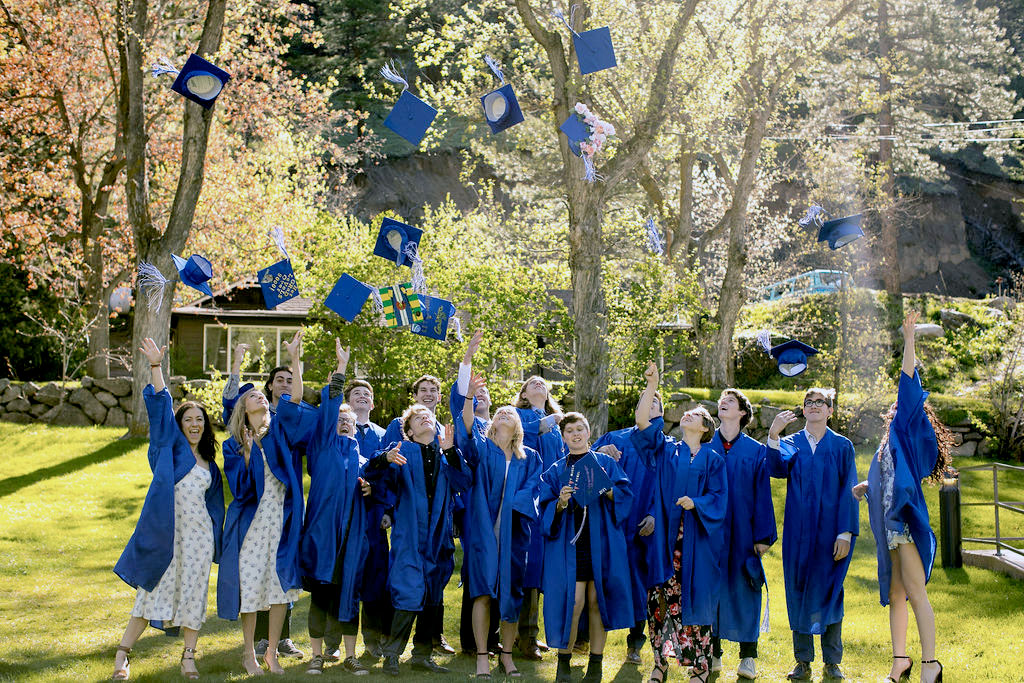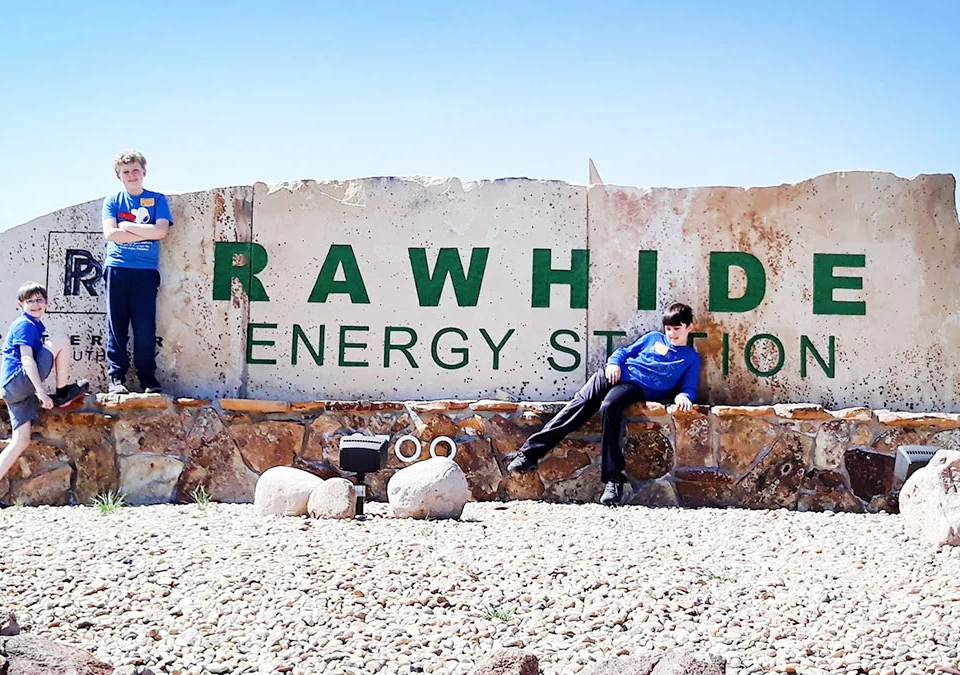Already a member? Log in to the Member Site at members.mastery.org.

Join MTC at iNACOL
October 17, 2019
Reinventing Credit
November 15, 2019Reimagining College Admission Season


“Will I be able to get into college?”
This is a common question coming from high school seniors around the country right now, and at Watershed School, our progressive model of education can add to their concern as students face a traditional application process.
A hard working and charismatic student with excellent grades, extensive extracurricular activities connected to his intended field of study, above average test scores, and a legendary level of student engagement should not be concerned about if he will get into college. Yet here he is, wondering if his goals are possible. As he goes through the application questions, he is unable to answer in straightforward ways, and the nerves creep in. Fast forward a few months and he is sorting through a list of college acceptances from every school to which he applied.
The Watershed Approach
At Watershed, we have a 100% college acceptance rate. Our students experience honors level learning through interdisciplinary expedition courses investigating real-world questions. Each class a student takes, from mathematics to art, endeavors to push learning beyond the classroom. Students collaborate on big projects to communicate the depth and breadth of their understanding and gain experience managing group dynamics. Our students play active roles building our community—from participating in the hiring of new faculty, stewarding our space, to planning and leading community days with service projects and school-wide activities. We don’t have “finals” or traditional grades; instead we do large end of term presentations to share learning with parents, students, and community members. Students travel more than 100 days in their four years of high school around the U.S., internationally, and through the wilderness, learning how to thrive in a group and meet new people and places to understand more deeply the cultures, environments, and dynamics that make up our world. So, when our seniors ask, “will I be able to get into college?” what they are really asking is “where does all this experience fit on my applications for college?”
At Watershed, I am grateful to have class time each week dedicated to college counseling. Starting in the spring of junior year through the fall of senior year, we have a 40-minute seminar block carved out each week, which is enough time to talk about process, share ideas and progress, and work through questions for the good of the whole. Our students begin by exploring options for what’s next. Who are you? What do you want in your next learning community? Where do you want to live? A lot of my role as college counselor is to ask questions and encourage students to build the confidence to answer for themselves. An individual’s transition out of high school and into whatever comes next is often the first major independent decision they make. Our college seminar program is designed to support students in finding their most inspirational future. Then the college application process requires our students to clearly articulate what our program is and how their experiences in it has shaped who they are to prepare them for college-level rigor. Currently, a lot is packed into our transcripts—a combination of a traditional-looking transcript to simplify our program and courses and an intentional sampling of student narratives. Part of our seminar course is for students to identify and reflect on moments of pride in academics, growth as a learner or individual, and paradigm-shifting experiences. From this, students select five to six courses about which they feel most proud, and those narratives are attached to a student’s transcript.
Moving toward a Mastery Transcript
We did not have a GPA conversion until we heard word from various college reps that our students were given a baseline GPA if they completed the requisite coursework for admission. This was often not high enough for significant merit scholarships, impacting our students who need financial aid. Presently our transcripts include earned proficiency levels, a GPA, and several narrative assessments selected by students to highlight the pride for the work they have completed and the breadth of experiences they have had. Our conversion is a way to communicate in a conventional way what our students have accomplished and to show their growth over time. GPA’s are not a part of our culture until the college process begins. A GPA is not calculated until the end of junior year, and, every time I pass them out, it’s hard. I know why we moved to this conversion, but the optimist within me believes the GPA’s days are numbered as groups like MTC aspire for better.
At Watershed, the Mastery Transcript creates an opportunity for our students that aligns well with our design principles. Student agency at our school honors students as architects of their own learning. The Mastery Transcript process for us cultivates student voice and enables students to take an active role in their transcript as they show learning and work representative of their growth in the competencies we know are important. Trying to communicate to colleges by ourselves is incredibly difficult, but having a larger community to share in this process and together help catalyze the shift away from GPA toward more meaningful measures is invaluable. This year we will be working with a group of high school students to build their Mastery Transcripts, and then they will help us to create a process that will work for everyone within our school. This student-led process will provide a space for our graduates to reflect on and articulate their qualities, skills, and experiences that have shaped them as learners and individuals.
Countless people talk about the desired qualities of college applicants and who is most successful in life beyond high school. The application process to higher education should reflect this. Our head of school, Tim Breen, shares, “The research on college success is clear: students who are curious learners, good communicators, creative and critical thinkers are those who thrive. Unfortunately conventional high school courses and grades often focus more on content retention (which does not correlate with success at college). This is why we need to push change in the system.”
Changing College Admissions
In light of the recent college admissions scandal, it is time to evaluate how we define success. As Watershed’s mission states, it is helping our future generations to “spark adventure and wonder, foster inquiry and community, and build the character and ability… to take on the world’s greatest challenges.” Success for us is defined by the excitement each graduating class shares with underclassman on our closing day of the school year about what’s next for them, how they have worked hard, explored options, and chose with confidence their next community to immerse in. Success is our seniors beaming with joy as they look to their futures and inspire others to do the same. The right fit between a college and an individual is invaluable for developing the skills and direction to build a life of success and happiness.
We are a tiny school with aspirations to make positive change in the lives of our students. Currently the college admissions process is ambiguous and unnecessarily stress inducing; it reduces students to numbers. Every day we encourage our students to take risks, use creative problem solving, critically question their beliefs, and find solutions to real world problems. Now it’s our turn, as school leaders, to use our collective voice, along with what we know is best for kids, and change what is possible in college admissions.
PHOTO CREDIT: Watershed School




